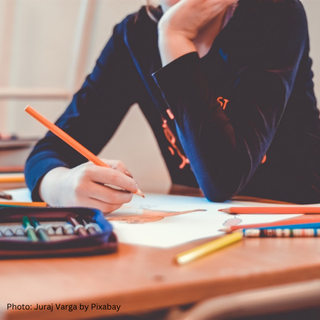I Love Russia
Created14/03/2024
updated on15/03/2024 09:29:15
On February 16, 2024, the death of Alexey Navalny, the Russian opposition figure and Putin's opponent, shocked the world. We, the colleagues at KulturKaufhaus, were also deeply affected by the news. A lot has happened since then. In addition to his fate, the reporting on Alexey Navalny reflects numerous topics that continue to concern us in other contexts: democracy, freedom of speech and the personal sacrifices we are all prepared to make for these values.
To better understand the situation, we talked to our Russian-born colleague, Vera (note: name changed by the editor). Since her family lives in Russia, she wanted to remain anonymous. She shared with us her view of her homeland and some book recommendations.
KulturMagazin: Vera, how would you describe Russia under Putin?
Vera: Real democracies in the 21st century have one thing in common: their governments represent different groups of people, different worldviews. Their basic idea is that everyone has the right to speak freely. Russia is not a democratic country in this sense. Even though democratic institutions formally continue to exist, an authoritarian system emerged under Vladimir Putin. There are currently thousands of people in prison who want to exercise their right to freedom of speech. Criticism is systematically suppressed, journalists and cultural workers are being persecuted and imprisoned.
KulturMagazin: Which book would you recommend to our readers to find out more about the Russian opposition?
Vera: To get an idea of what it means to fight against Putin's regime, I recommend "Putinland" by Leonid Volkov which is currently available in German. This book is a report from within. Russians who have followed the opposition for the last 20 years will recognize most of the faces and events. Volkov talks about how hard and important the fight for democracy is. And here I can only support Navalny’s appeal, which has been circulating since the terrible day of February 16, 2024: "Don’t give up." The values that the Russian opposition represents are fundamental human rights that we protect here in Germany. It pains me that under Vladimir Putin's government these are being so blatantly trampled upon.
KulturMagazin: How present is politics in everyday lives of Russian people?
Vera: Politics in Russia will eventually come after everyone, even if you are not interested in it. For each person it will have different faces: absolute poverty, lack of prospects, constant fear or even death.
KulturMagazin: Which book gives us a particularly good insight into life in Russia?
Vera: "I love Russia" by Elena Kostyuchenko.
It is a collection of articles by a respected young journalist who has seen the worst in Russia. If it were literary fiction, we could have said that she brilliantly painted various portraits of the inhabitants of this country. But it's not fiction, it's a brutal reality. Some of the chapters may shock you, but unfortunately for the Russian people this is the reality.
In addition to sharp descriptions, Elena Kostyuchenko provides readers with an analysis of the political landscape with fake TV and corruption, as well as an overwhelming love and gentleness towards the people she met. The Russian people have changed little since Dostoyevsky. Many feel lost, almost everyone dreams of a peaceful life. But politics always comes in the end. It would have been very optimistic to say that Putin decides the fate of ordinary Russians, but that is not the case. He does not care. He is not a servant of the people.
KulturMagazin: What is the attitude of the Russian opposition to the war in Ukraine?
Vera: It's no secret that the Russian opposition, as diverse and divided as it may be, is against the war in Ukraine. Putin's regime and the war go hand in hand. Putin's autocratic system is to blame for it and for the fear that prevails in Russia today. It distorts history and does not allow society to come to terms with the past in order to heal old wounds and create a better future.
KulturMagazin: Speaking of the past: What role do Russian history and its processing play?
Vera: I believe that open discussion about historical events is crucial for democracy. This is the only way to learn from mistakes. Mikhail Zygar, a well-known journalist and non-fiction writer, is not the first to talk about it, but his book "War and Punishment" stands out. He traces Russian colonialism and in particular the hatred towards the Ukrainian people in the history of both countries. He provides the background that explains how Putin dared to start this war. If properly discussed, these origins can produce a solid foundation on which to build the truly democratic institutions in Russia.
KulturMagazin: What's next?
Vera: It is disheartening to see how the lives of ordinary and extraordinary people are destroyed. There is always time to grieve and to act. Many people are in mourning right now. But hope will come back.
KulturMagazin: Dear Vera, thank you very much for the conversation and your book recommendations. .png)



